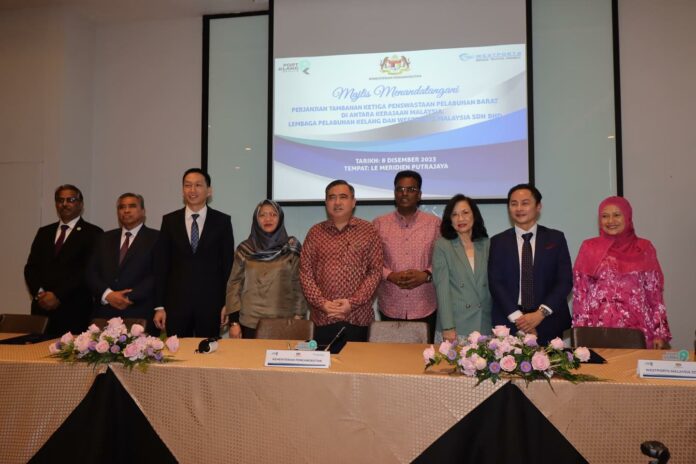PUTRAJAYA, Dec 8 — The privatisation agreement involving the government, the Port Klang Authority (PKA) and Westports Malaysia Sdn Bhd has been extended for 58 more years from 2024 to 2082, said Transport Minister Anthony Loke.
The previous agreement spans 30 years from Sept 1, 1994, to Aug 31, 2024.
“During these 30 years, Westports (formerly known as Kelang Multi Terminal Sdn Bhd) has transformed Pulau Indah into a rapidly developing port terminal with wharf facilities and logistics centre spanning eight kilometres that can handle the world’s largest container ships in addition to conventional cargo ships such as dry bulk, liquid and gas as well as roll-on/roll-off (RORO) vessels,” he said.
He was speaking to the media after witnessing the signing of the third supplementary privatisation agreement between the government, PKA and Westports here today.
Loke said the new concession also includes the development of new facilities with an investment of RM39.6 billion.
The minister said the extension of the agreement will involve implementation of the Westports container terminal expansion project, which is expected to increase container capacity from 14 million TEUs (20-foot equivalent units) to 27 million TEUs by 2082.
Citing a PriceWaterhouseCoopers (PwC) report in 2022, Loke said the expansion of the terminal would have an economic impact of RM55 billion as well as contributing RM19 billion to the gross domestic product and creating 6,000 full-time job opportunities.
“The Westports terminal expansion from Container Terminal (CT) 10 to CT17 will be carried out on sustainability principles in line with green port and smart port concepts, including the use of automation and digitalisation which will reduce greenhouse gas emissions,” he said.
Loke said the terminal expansion has been planned for a long time and the focus is on efforts to strengthen the capacity of the country’s ports.
“With the importance of investment from major powers especially China, we need a bigger and more efficient port to handle the increase in container volume.
“We are strengthening our own maritime sector and ports without having to worry about competition from other countries,” he said.
Loke said the development of maritime infrastructure is one of the government’s priorities in improving the country’s economy, and therefore the importance of cooperation between the public and private sectors, especially in dynamic and global industries such as ports and shipping.
















